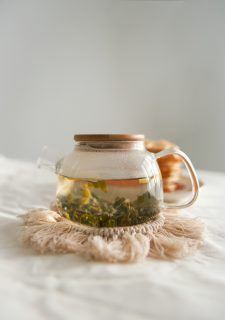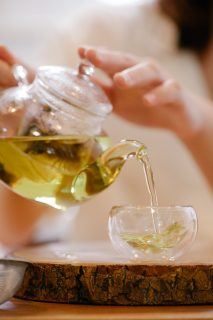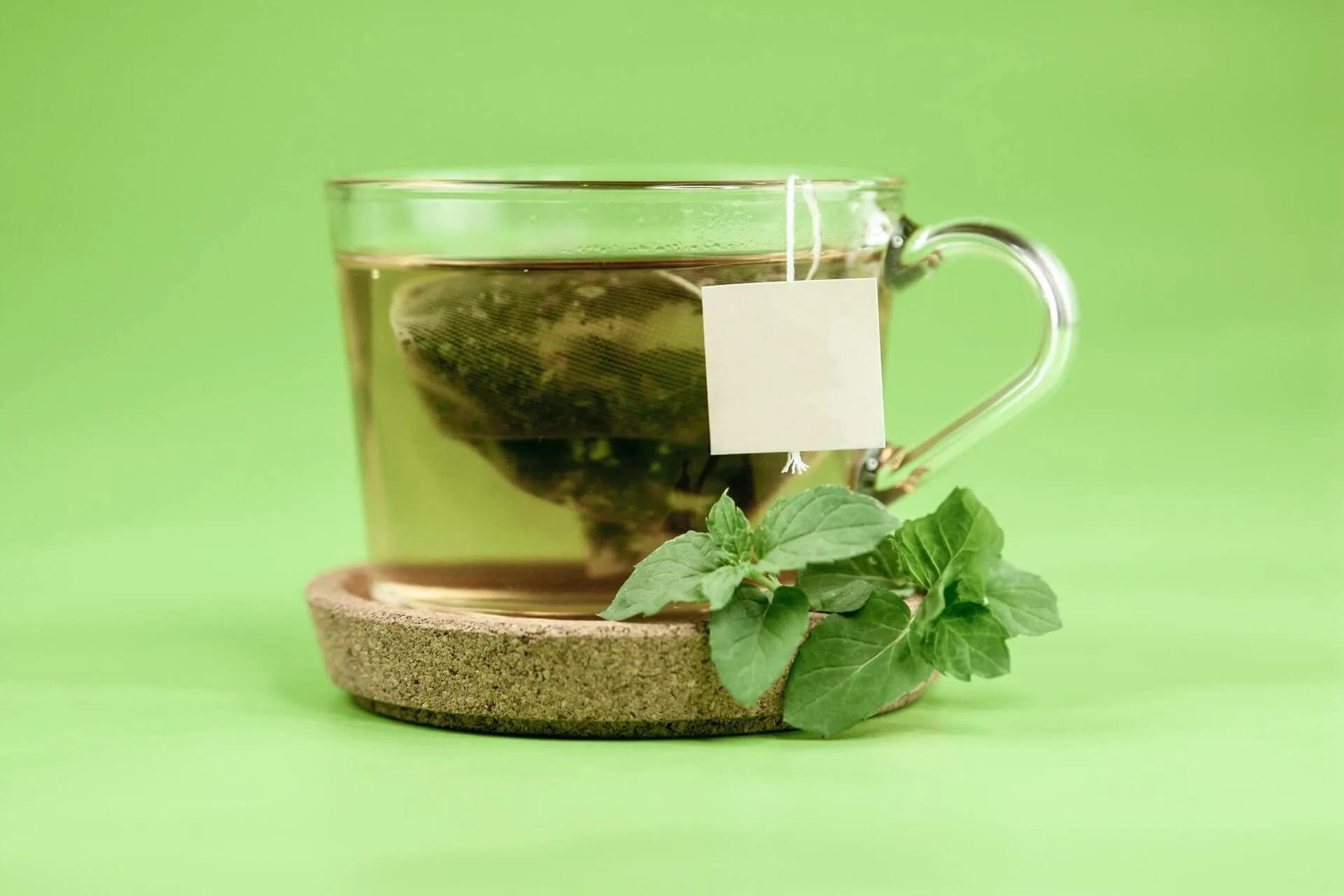A good cup of green tea is an art in itself. However, the art remains unknown to a big mass of the population. And even if some are aware of the healthy beverage, some unanswered questions keep the healthy beverage in the shadow. How to prepare green tea correctly, how healthy is it, and can you lose weight with green tea? Here are the answers to all your questions.
- How healthy is green tea?
- Green tea to lose weight?
- How does green tea taste?
- How do I prepare green tea?
- How is green tea different from black tea?
How Healthy Is Green Tea?

Photo by Tamara Schipchinskaya on Unsplash
Green tea has been a popular research object: numerous studies are devoted to green tea and ascribe various health benefits to it: it is said to reduce the risk of cancer and blood pressure and to help you lose weight. While most of these benefits are true, one simply cannot consider green tea as an elixir to lose the extra fat. It’s one of the common myths that surround green tea.
Green tea is, no doubt, a good start to your weight loss journey, but it isn’t a magic potion to lose all the extra fat overnight. Green tea is also good for digestion because it contains more tannins than fermented black tea.
The reason for the health benefits should be the contained catechins. They are among the secondary plant substances and serve to protect the plant from predators. EGCG for short is considered particularly promising. So far, however, only indications have been found, but no solid proof of the health-promoting effects of green tea.
Green Tea To Lose Weight?
This question is also a popular research topic that has not yet been conclusively answered. It is possible that a certain substance in green tea, the catechin EGCG, reduces the increase in body fat – at least which is what a study on mice suggests. However, you should not expect too much from it and only drink green tea, because many factors play a role in losing weight.
How Does Green Tea Taste?

Photo by Anna Pou from Pexels
Green tea lovers appreciate the finely tart, spicy, and at the same time mild and gentle taste. Others avoid green tea because it tastes too bitter. But that could be due to the way of preparation: If the tea is infused with water that is too hot or if it steeps too long, the tannins in the green tea can make it taste bitter. If the slightly tart taste of green tea is too one-sided for you, you can use green tea blends with vanilla, ginger, jasmine, and mint. In summer, green tea is also very refreshing as iced tea.
The popular chamomile tea tastes a little milder and is becoming increasingly popular with newcomers due to Chamomile tea’s benefits for health.
How Do I Prepare Green Tea?
When it comes to green tea, most people aren’t interested in being able to quickly gulp down a warm drink. It is all about the enjoyment that you take. The most important things to consider when preparing green tea are:
Water Temperature

Photo by Efecan Efe from Pexels
The water temperature is the biggest factor here compared to the preparation of other teas. While black tea or herbal and fruit tea should be poured over with boiling water, slightly cooled water is better for green tea: 70 to 80 degrees Celsius is ideal, and depending on the type, 50 to 60 degrees Celsius.
Tip: It is best to boil the water once and then let it cool for 10 minutes, then one liter of water has reached about 80 degrees. If you want to know exactly, measure the temperature or use a kettle with a temperature controller.
Brewing Time
Once brewed, green tea is ready in no time. It should not steep for more than 2 minutes.
How Is Green Tea Different From Black Tea?
Green tea and black tea are the same and yet so different. Black tea is made from the leaves through fermentation. Thus, green tea is considered non-fermented. The difference lies in the processing. Since fresh tea does not last for long, different processes of preservation are used: green tea is withered and dried and black tea is fully fermented.
Conclusion: Catechins Make Green Tea Special
Yes, green tea is literally a kind of tea: it is the leaves of the tea bush that are withered and dried. Unlike black tea, they are not oxidized or fermented. Therefore, the content of secondary plant substances and, in particular, the catechins in green tea should be high. The catechins, especially the EGCG, have shown positive effects in various studies on animals and humans, but there is still no solid evidence.
Green tea tastes best when it is freshly prepared and only briefly poured over with hot water at around 80 degrees. With hotter water and longer brewing times, the catechins can make it bitter.



![women [longevity live]](https://longevitylive.com/wp-content/uploads/2020/01/photo-of-women-walking-down-the-street-1116984-100x100.jpg)










